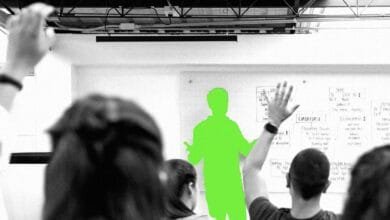Google’s NotebookLM Expands to Younger Users Amid AI Education Race

▼ Summary
– Google’s AI note-taking app, NotebookLM, is now available to younger users, including Google Workspace for Education users of any age and consumers 13 and up.
– The expanded access aims to help students better understand class materials with features like Audio Overviews, Mind Maps, and Video Overviews.
– NotebookLM recently introduced Video Overviews, enabling users to turn notes, PDFs, and images into visual presentations.
– Google has implemented stricter content policies for under-18 users to prevent inappropriate responses and ensure data privacy.
– The move follows OpenAI’s study mode for ChatGPT, signaling increased competition in AI-powered education tools.
Google has expanded access to its AI-powered note-taking tool, NotebookLM, making it available to younger students as competition heats up in educational technology. Previously restricted to users 18 and older, the platform now welcomes Google Workspace for Education users of all ages, along with general consumers aged 13 and up.
This shift aims to help students engage more deeply with their coursework by leveraging AI-driven features. NotebookLM allows users to transform notes into audio summaries, create interactive mind maps, and even generate video overviews from uploaded documents, PDFs, and images. These tools are designed to simplify complex topics and enhance learning through multimedia formats.
The move arrives as debates intensify over AI’s role in education, particularly concerning privacy and ethical use. Google emphasizes that NotebookLM enforces stricter content filters for underage users to block inappropriate responses. Additionally, the company clarifies that uploaded materials and chat interactions remain private, neither reviewed by humans nor used to train AI models.
The expansion mirrors broader industry trends, with OpenAI recently launching a study-focused mode for ChatGPT. As tech giants race to develop AI solutions for classrooms, tools like NotebookLM could redefine how students absorb and interact with information. However, questions linger about balancing innovation with responsible implementation in educational settings.
(Source: TechCrunch)






